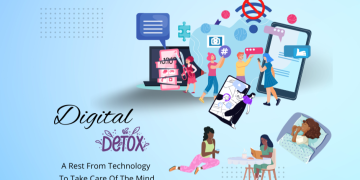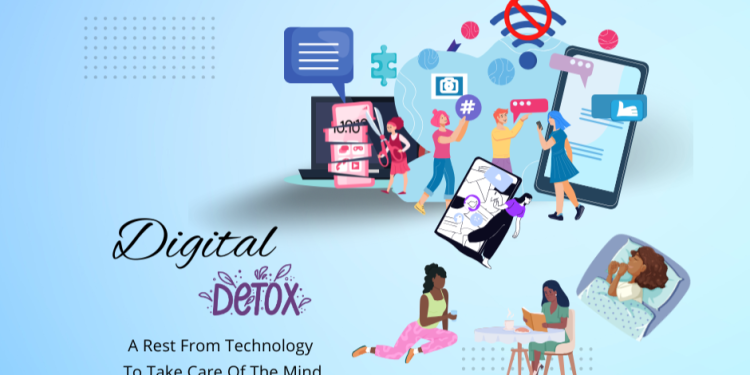In today’s always-online world, we’re constantly surrounded by pings, notifications, and endless scrolling. While staying connected has its perks, it also comes with a price—our peace of mind. This is where digital detoxing comes in: a conscious effort to step away from screens and reconnect with ourselves, our surroundings, and the present moment.
What Is a Digital Detox?
A digital detox is a period of time during which a person refrains from using electronic devices like smartphones, computers, and social media platforms. The goal? To reduce stress, improve mental health, and reclaim time for real-life experiences.
It doesn’t have to be extreme—you don’t need to throw your phone into a lake or disappear off the grid. Even small steps, like turning off notifications or setting phone-free hours, can make a huge difference.
Why Do We Need It Now More Than Ever?
- Information Overload: We’re exposed to more content in a day than previous generations saw in a week. It’s overwhelming, and it leads to mental fatigue.
- Social Media Pressure: Constant comparison with curated highlight reels can lead to anxiety, low self-esteem, and FOMO (Fear of Missing Out).
- Sleep Disruption: Blue light from screens disrupts melatonin production, making it harder to fall asleep.
- Reduced Productivity: Frequent phone checks and multitasking can eat into focus time, leaving you drained but unaccomplished.
The Benefits of a Digital Detox
- Better Mental Health
Taking a break from online drama and doomscrolling can reduce anxiety, depression, and feelings of inadequacy. - Improved Focus
Without constant distractions, your mind can finally do what it was made for—think clearly and creatively. - Stronger Real-Life Relationships
Ever notice how much better conversations are when phones are put away? A detox helps you truly connect with the people around you. - Quality Sleep
Ditching devices an hour before bed can lead to deeper, more restful sleep.
How to Start Your Own Digital Detox
- Set Boundaries: Designate “no screen” zones like the bedroom or dining table.
- Use Apps to Limit Apps: Tools like Digital Wellbeing (Android) or Screen Time (iOS) help track and reduce screen time.
- Schedule Detox Days: Pick one day a week to unplug—Sunday is a great start.
- Replace Screen Time with Me Time: Read a book, take a walk, journal, meditate, or spend time with loved ones.
Final Thoughts
A digital detox isn’t about rejecting technology—it’s about reclaiming control. When used mindfully, our devices can be powerful tools. But when they begin to control us, that’s when it’s time to pause and reset. So, take a deep breath, unplug for a while, and reconnect with what truly matters.
Your mind—and your soul—will thank you.

































































